31 July 2018
The shine of the leather, the harmonious pattern of its grain, the sound made by the metal fittings, unchanged for over 180 years. The elegance, the colors, warm, earthy or as exotic as Oriental spices: orange, of course, symbol of the fashion house, but a whole new palette of shades as well. It all started in 1837, in the modest atelier of the harness maker Thierry Hermès, on Rue Basse-du-Rempart in Paris. A small workshop employing just a few craftsmen that went on to become a point of reference for Parisian high society, especially after it moved, in 1870, to number 24 Rue Faubourg Saint-Honoré, the historic headquarters of the label. In the early decades of the 20th century, Hermès became a benchmark brand for fashionable men and women who liked to take part in sporting activities, especially riding, and the emblem of quality luggage, an indispensable accessory of the first journeys by automobile. Class, tradition, modernity and speed came together in timeless articles. The fashion house’s development was favored in the twenties by the ascent of Thierry’s grandson Émile-Maurice, who bought out his brother Adolphe’s share in the business. In that period the production of accessories commenced: the first leather bags that served to embellish the harness or the line of costume jewelry inspired by dog collars. In 1923 the bag for carrying harness and boots invented in 1892 for Julie Bugatti, wife of the famous automobile manufacturer Ettore Bugatti, was brought out in a sportier version, better suited to society life. It was given the name Torpedo no. 1. In the thirties, Émile-Maurice’s son-in-law Robert Dumas devised a smaller and more sober variant of the bag, marking a break with the highly decorative aesthetics of the time: it was the birth of le petit sac haut à courroies. A simple bag, without frills, chic, perfect for travel and fitted with a lock. The progenitor of the Kelly, le sac Hermès.
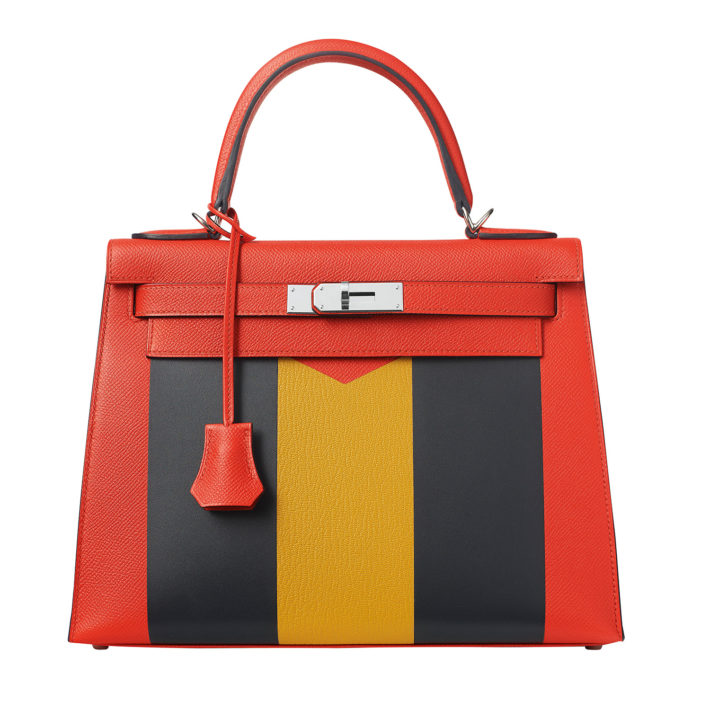
Kelly Sellier 28 in the new Kellygraphie version, with inlays of three different hides. Spring/Summer Collection 2018.
Then the princess came onto the scene. In the mid-fifties a young and much loved American actress, Grace Kelly, arriving in France for the filming of To Catch a Thief, one of the Alfred Hitchcock’s masterpieces, fell in love with a Hermès bag, so much so that she ordered a half dozen of them in different colors. And it was one of these that she would use to hide the early signs of her pregnancy from the flashguns of the paparazzi: this was in 1956, and she had not yet married Prince Ranieri. She would do so shortly afterward, and the picture of the future princess of Monaco holding her Hermès bag at waist height that was published in Life went all the way around the world. That image was to shape the destiny of an accessory that very soon became an icon of style and exclusivity. Today le sac Kelly boasts an unparalleled range of versions: seven sizes, from the Kelly 50 (centimeters) to the Mini-mini (15 cm), and over two hundred variants of material and color. There have been many customers, famous and not so famous, who have wanted “the same thing, but a bit different,” giving the bag a personal touch, and many artists who have created variations on the theme of the Kelly, starting from its basic structure. Every season adds a new chapter to the story, a rule that also holds true for the models of this Spring/Summer collection, with the Kelly Sellier 28 in Kellygraphie version—with inlays in three different hides and a color block in shades of black, orange and mustard—and the Kelly Retourné 28 Lettres au carré, in printed toile de camp and leather. Two models that come on top of the brand new Kellyado backpack, in Swift leather with canvas shoulder straps, launched with the Fall/Winter 2018 collection. Much sought after, the Kelly has over time become a true collector’s piece, to be owned and handed down like a work of art: this is clear from the record prices fetched by the one-off pieces periodically sold by the most prestigious auction houses.
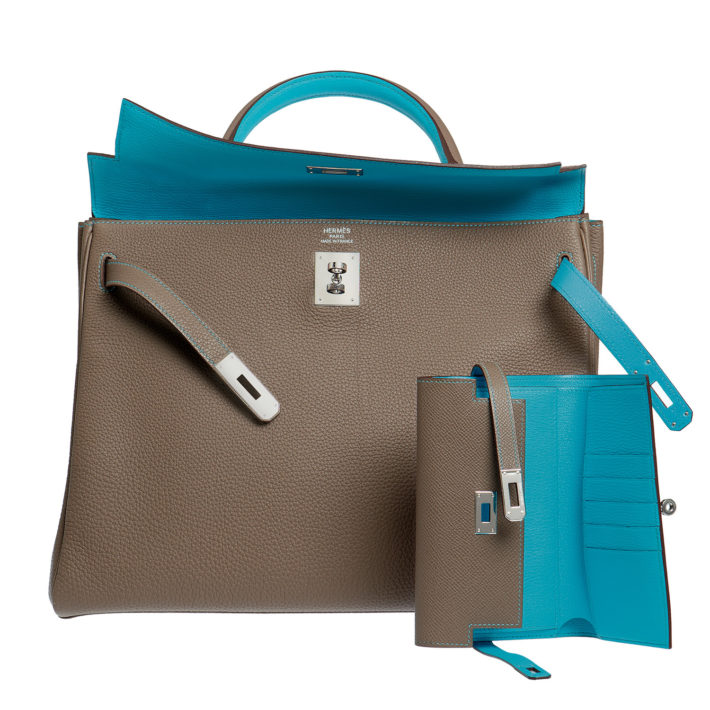
Kelly Eclat in Epsom leather with matching two-tone Kelly Wallet.
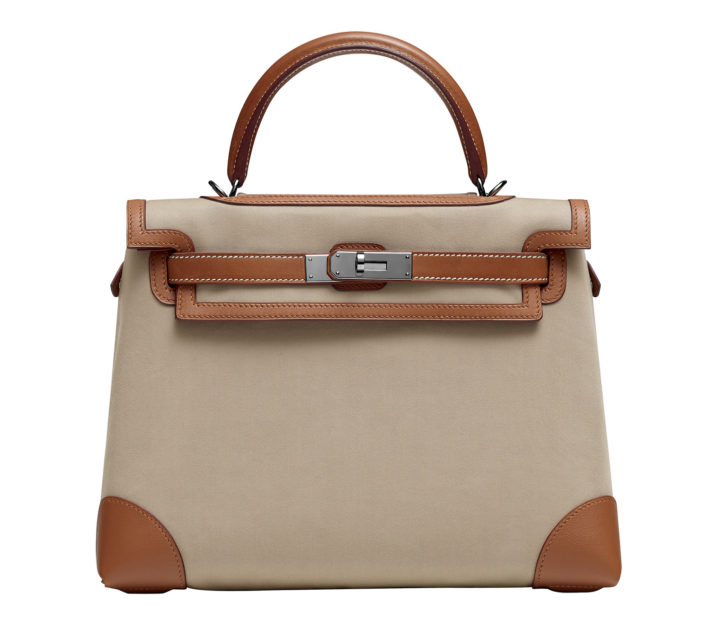
Contrasting stitching and colors. Fall/Winter Collection 2018.
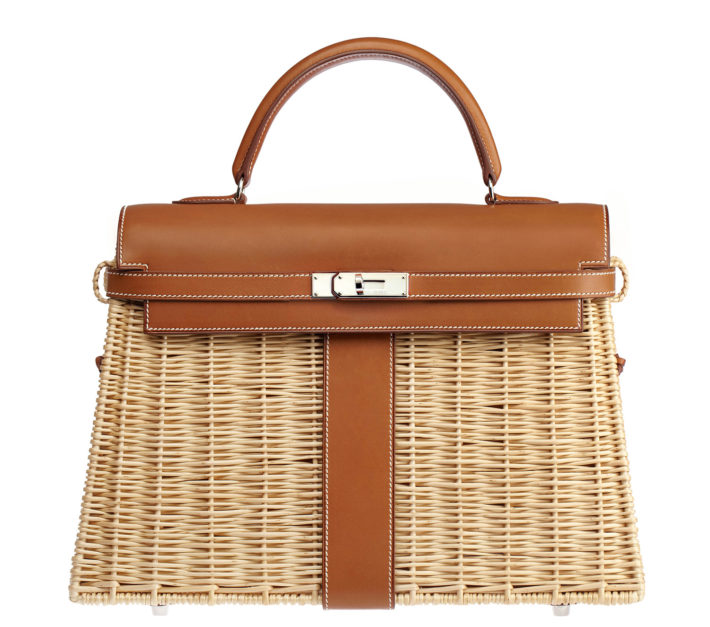
Summer version of the Kelly in the Picnic model made of woven straw and leather.
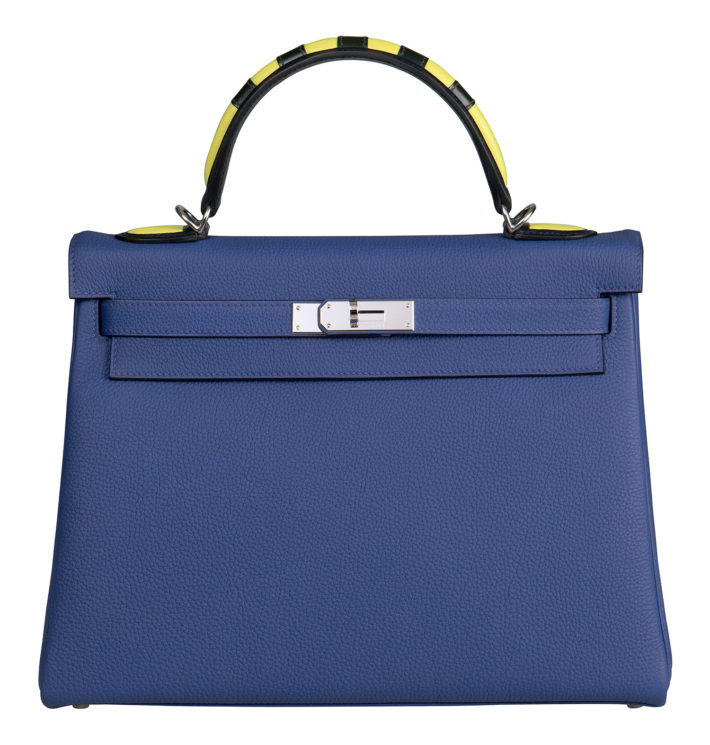
Chromatic contrasts with a handle embellished by the alternation of two different colored hides. Fall/Winter Collection 2018.
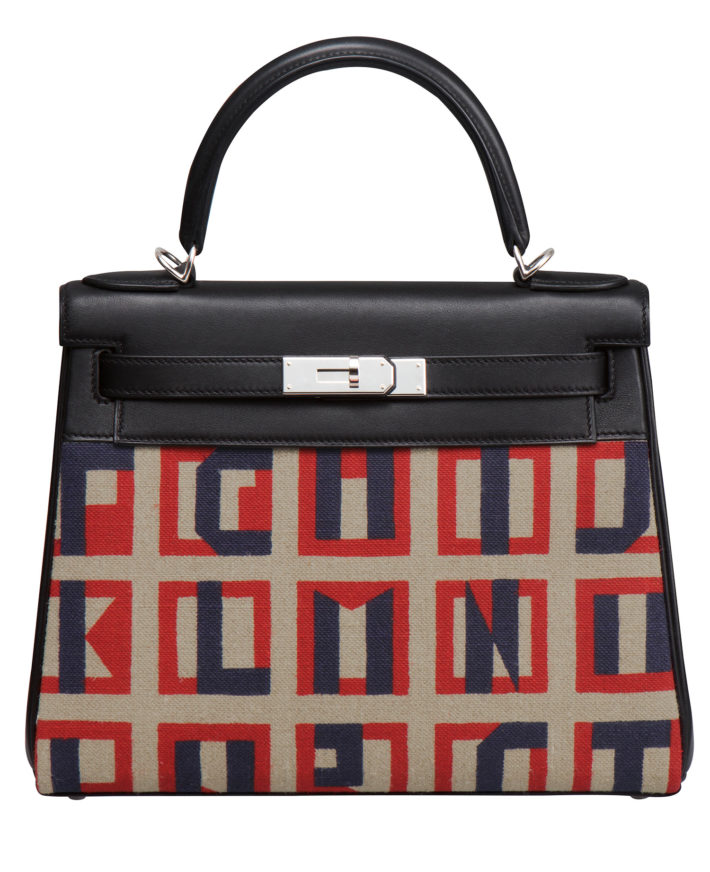
Kelly Retourné 28 in the Lettres au carré version, made of printed toile de camp and leather. Spring/Summer Collection 2018.
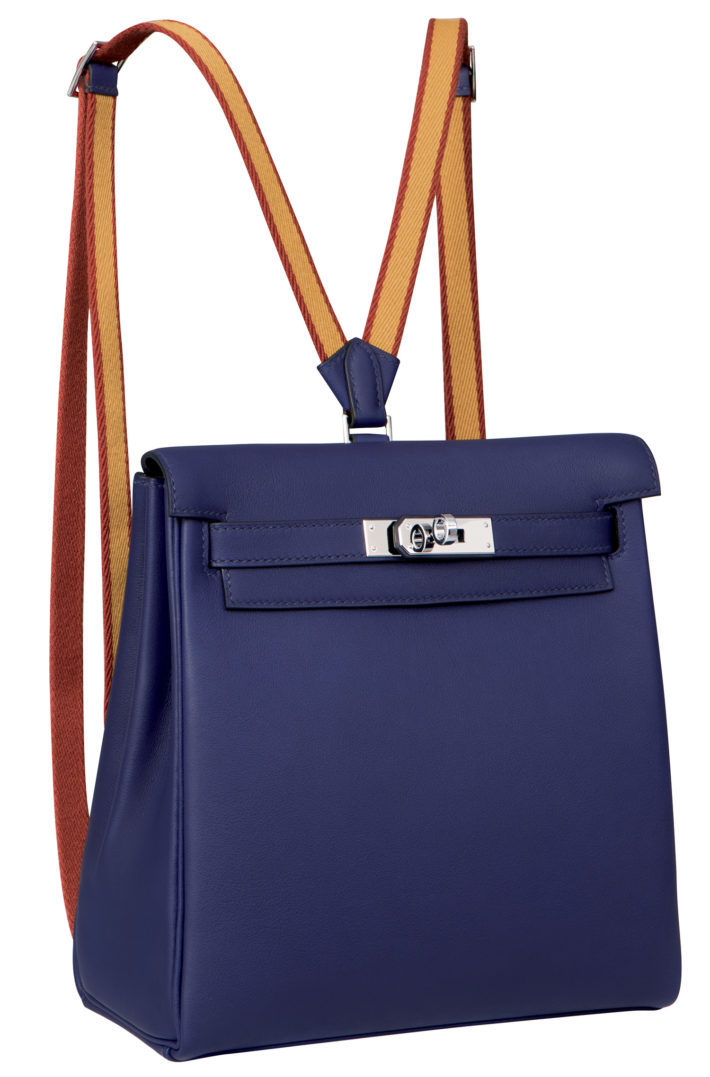
Kellyado backpack in Swift leather with canvas shoulder straps. Fall/Winter Collection 2018.
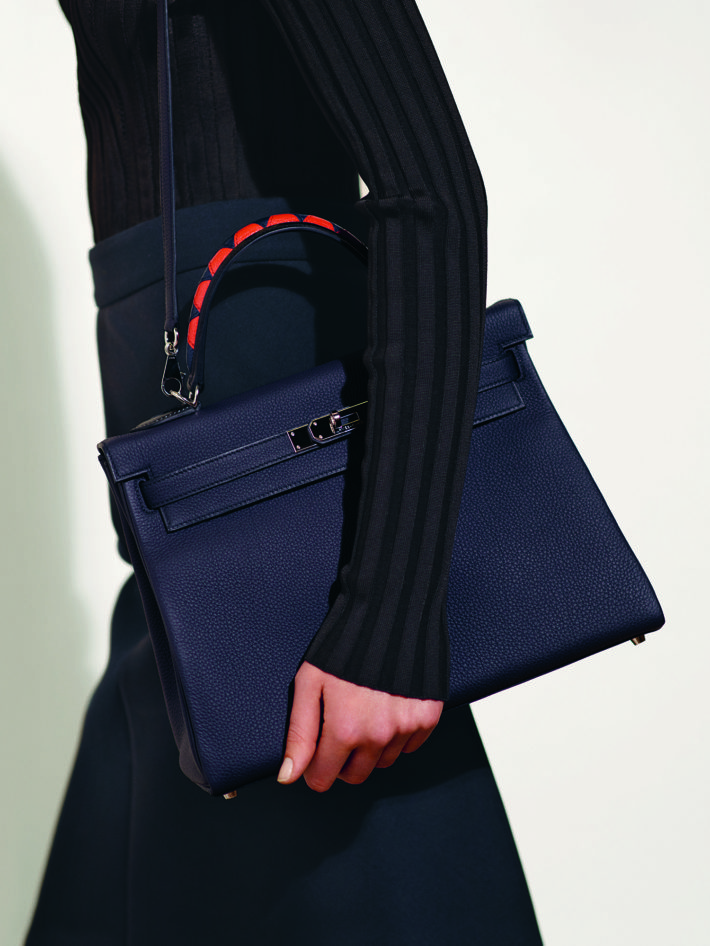
Chromatic contrasts with a handle embellished by the alternation of two different colored hides. Fall/Winter Collection 2018.
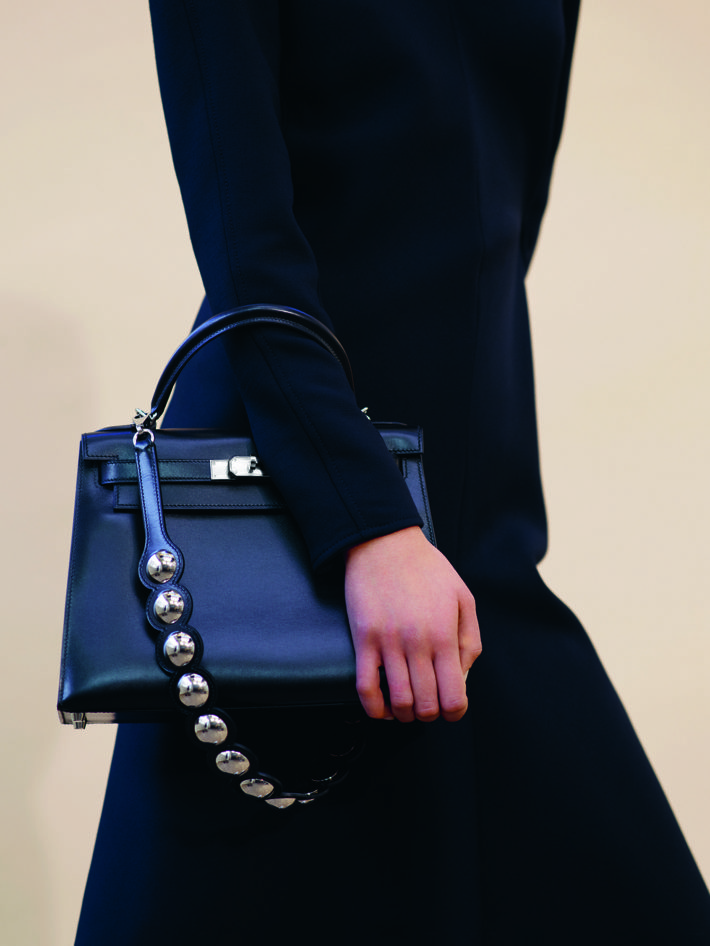
Shoulder bag embellished with metal inserts that enhance the refined shade of blue. Fall/Winter Collection 2018.
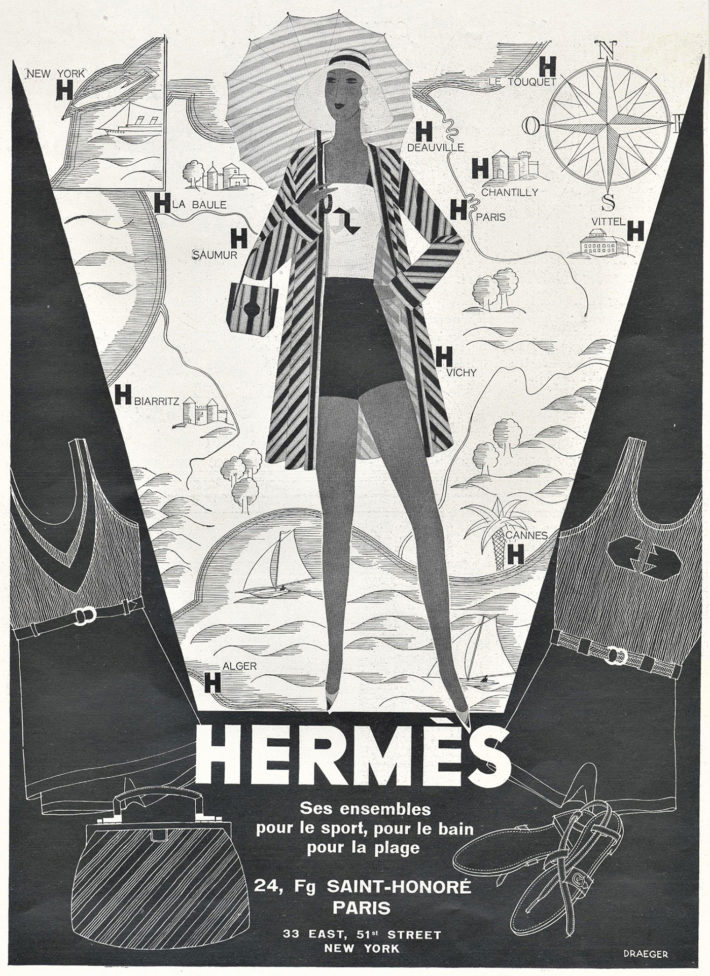
Hermès advert: Ses ensembles pour le sport, pour le bain, pour la plage. Original print, 1930.
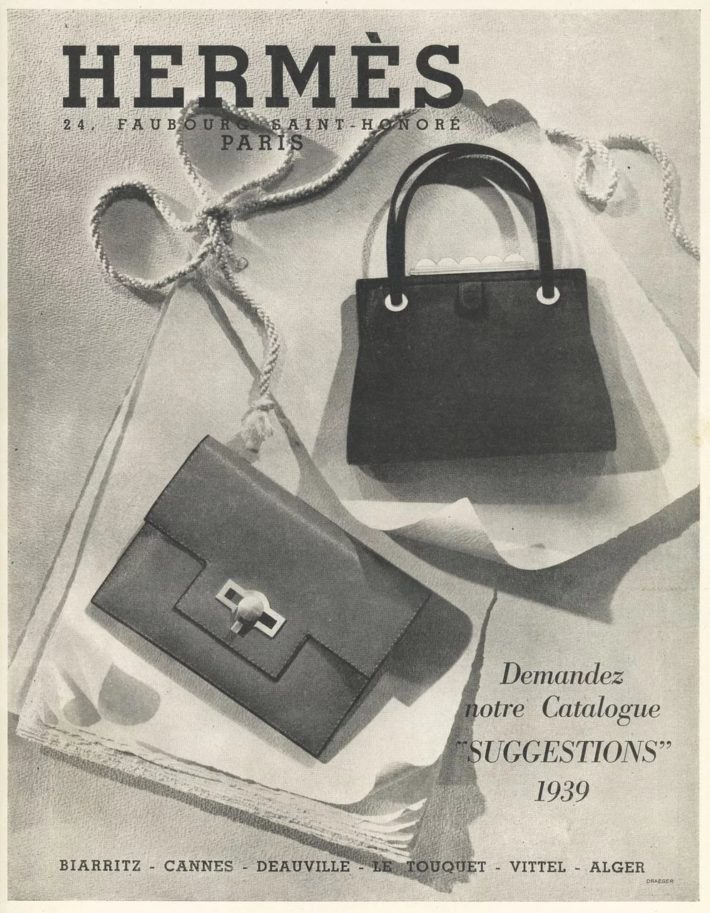
Hermès advert: Suggestions, purse and pocketbook. Original print, 1939.
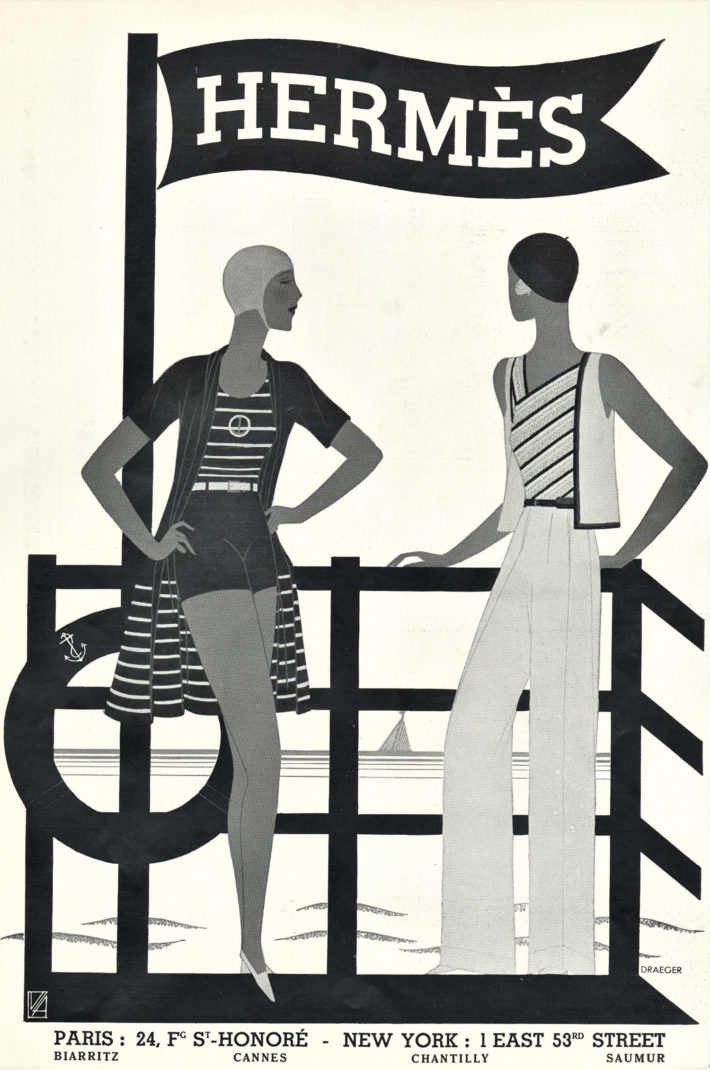
Hermès advert: women’s sportswear and beachwear. Original print, 1931.
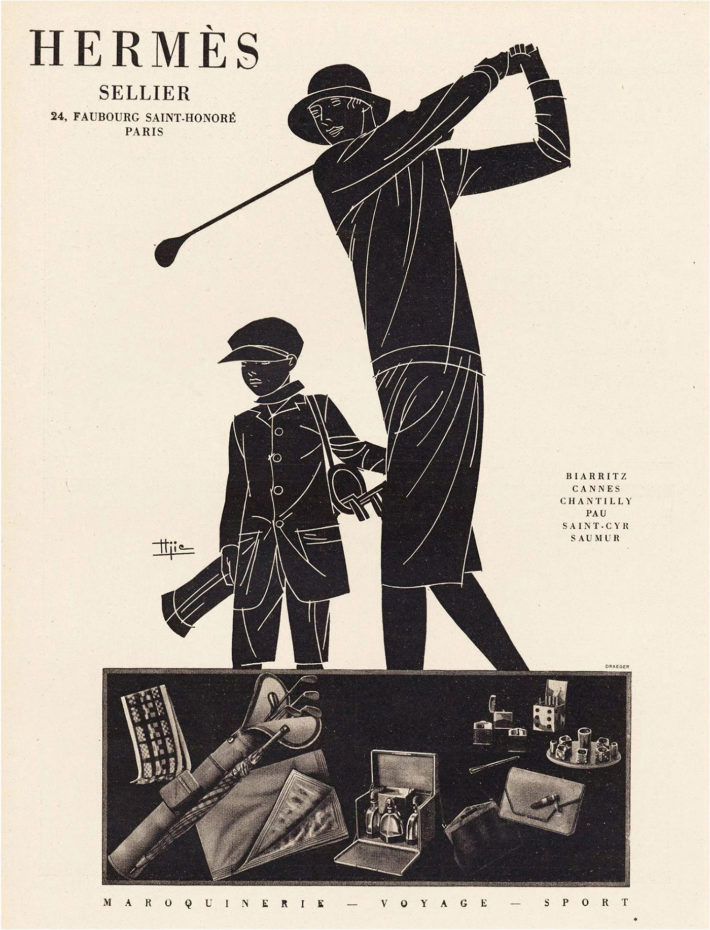
Hermès advert: Maroquinerie-Voyage-Sport, woman playing golf, illustration by Marcel-Jacques Hemjic. Original print, 1928.
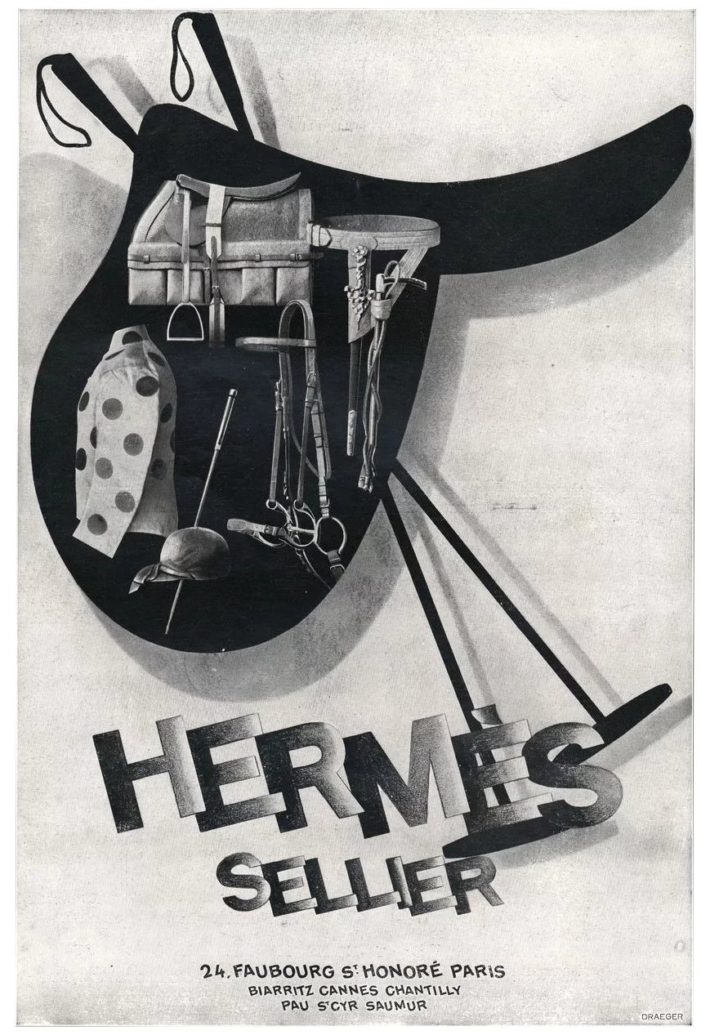
Hermès advert: clothing and accessories for equestrian sports. Original print, 1928.
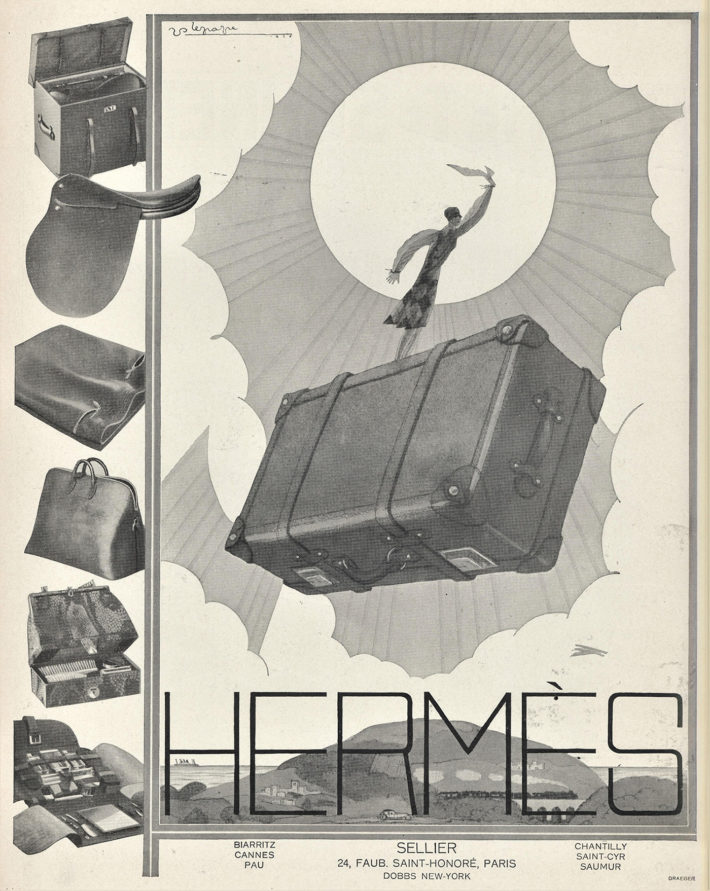
Hermès advert: luggage and travel accessories, illustration by Georges Lepape. Original print, 1926.